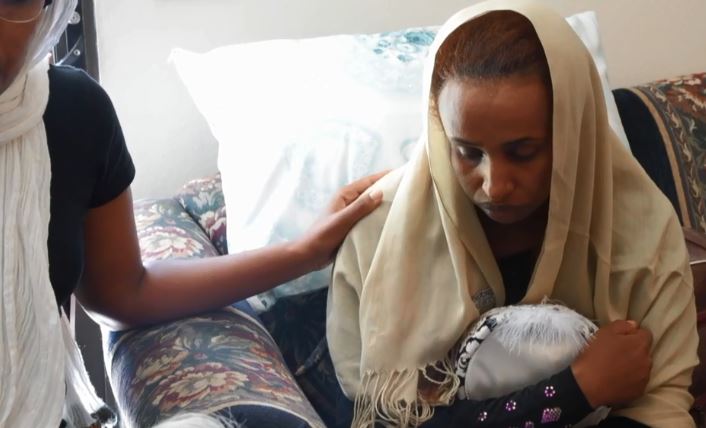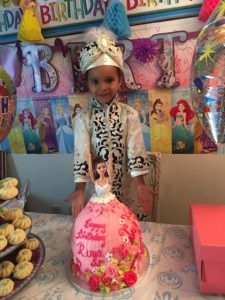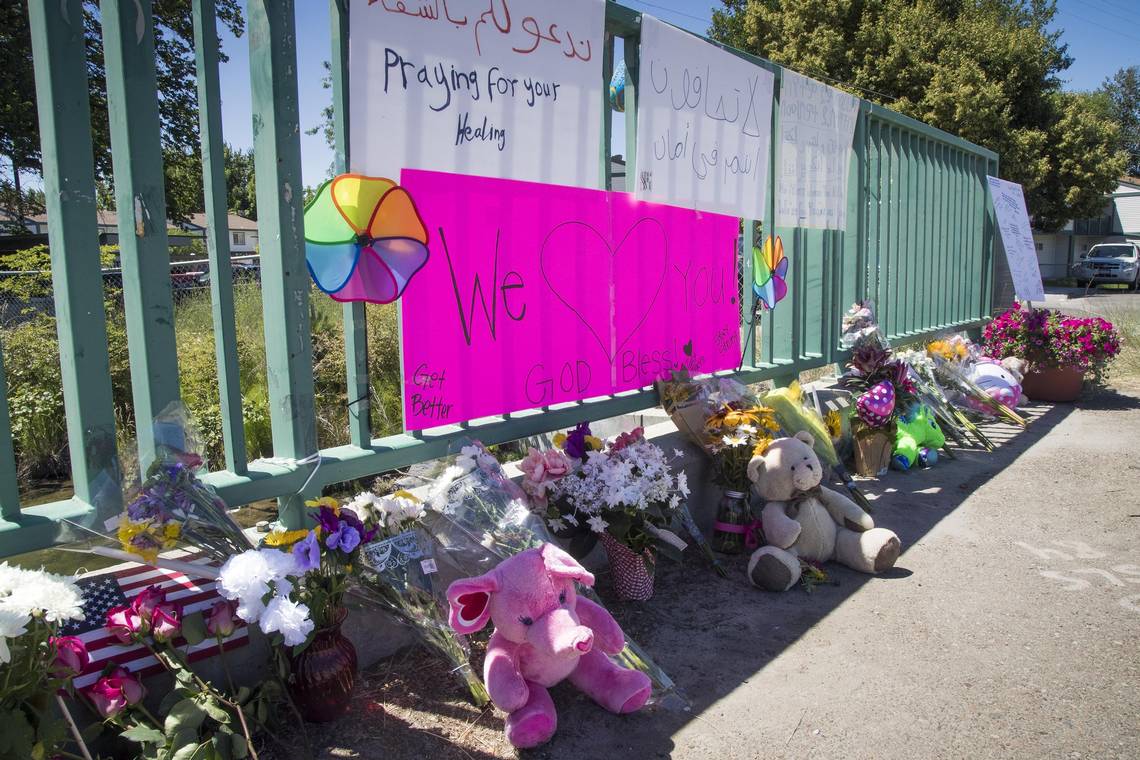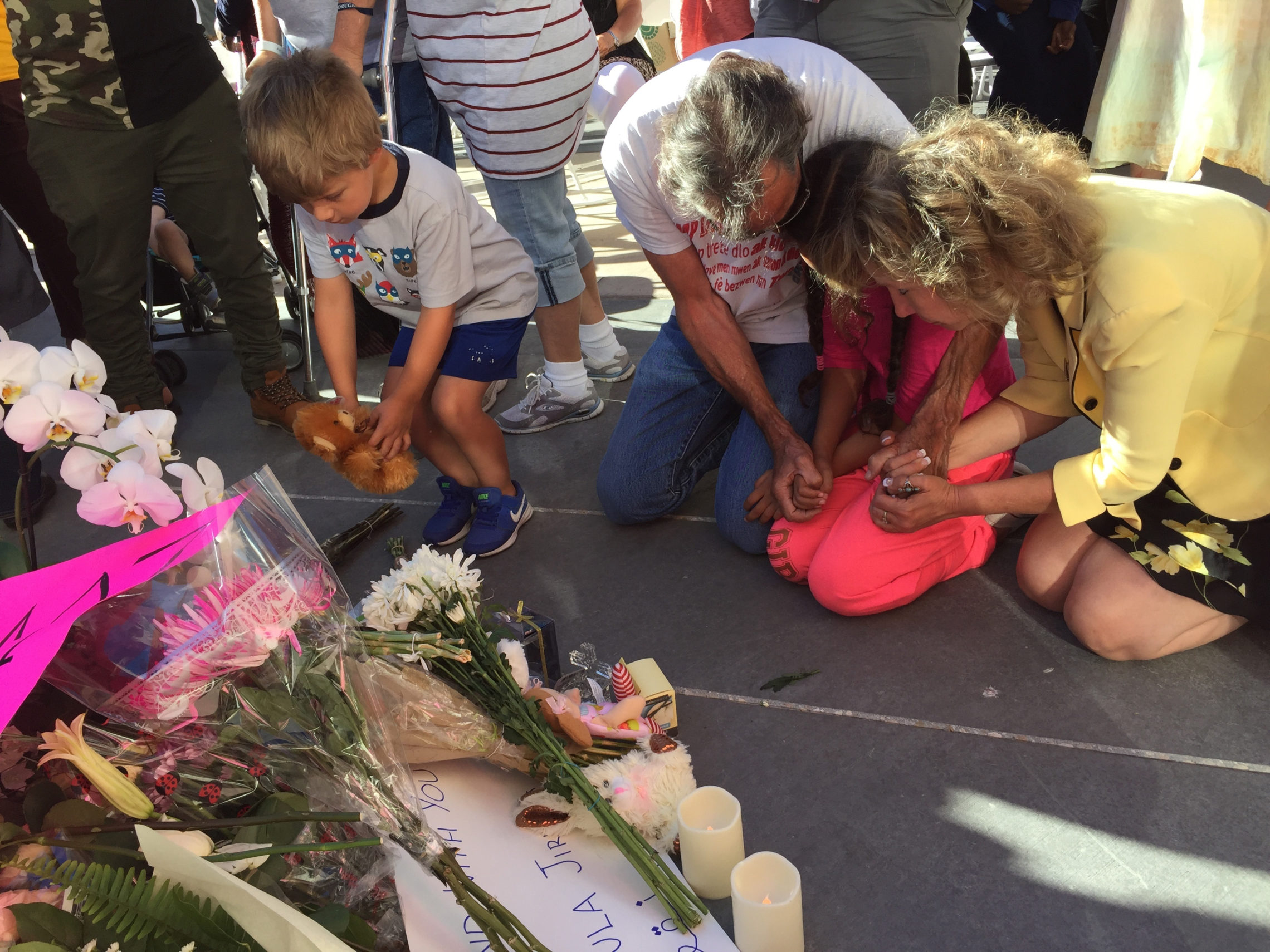
Mother Of Boise Attack Victim Mourns Loss Of Daughter

BY REBECCA BOONE, AP
Little Ruya Kadir had sparkling eyes, a few basic belongings and not much else when she arrived in Boise, Idaho more than two years ago.
But at just six months old, she had the most important thing: A mother who loved her so fiercely that she left behind her homeland, her husband and everything she knew so Ruya would grow up in a safe place.

Ruya Kadir was attacked Saturday night, June 30, 2018, during her third birthday part at her home in Boise’s Wylie Street Station Apartments. She was airlifted to Salt Lake City because of the severity of her injuries. She died on Monday, July 2. CREDIT: ANMAR LAFTA/IDAHO STATESMAN
Ruya was at her third birthday party — complete with a pink doll-shaped cake and a Disney princess banner — Saturday evening when a man armed with a large knife attacked. Ruya and five other children were badly injured, along with the three adults who tried to protect them.
Timmy Kinner, a 30-year-old homeless man who had briefly been a guest at the apartment complex where Ruya lived, has been charged with first-degree murder and several other felonies in connection with the attack.
And Ruya’s mother Bifituu Kadir is mourning her little girl, slain in the very community that was supposed to keep her safe.
Police say Kinner had recently been asked to leave the apartment complex because of bad behavior. They say the attack does not appear to be a hate crime.
“I remember Ruya when she was just a little bundle in my arms,” said Megan Schwab, an employment specialist with the International Rescue Committee who befriended Bifituu and Ruya when they first arrived in Boise as Ethiopian refugees in December 2015.
“It was a very long journey, not something she talks about a lot but I do know she was fleeing violence,” Schwab said. “She was alone with her little baby and very strong … she had a lot of resolve to protect her baby and create a new life for them.”
From the very first meeting, Bifituu and Schwab would pass baby Ruya back and forth as they filled out job applications and other paperwork aimed at getting the Kadir family properly settled in. When Schwab realized Bifituu had virtually no baby gear in her one-bedroom apartment, she found them hand-me-down furnishings and clothes.
Bifituu’s home was “always a monument to Ruya,” full of things the child loved, Schwab said.
“She loved shopping and dressing up very fashionably just like her mother,” she said. “Disney princesses were her favorite, and anything at all that was pink.”
Schwab saw Ruya just a month before the party, and was struck by how much she had grown. No longer toddling, Ruya flitted through the room where Schwab and Bifituu were talking. She stopped a moment, fixed her big, long-lashed eyes on Schwab and smiled. Then she dashed off in a game of chase with neighborhood kids.
On Monday morning, Schwab saw Ruya and Bifituu again, this time in a Salt Lake City hospital. She and other close friends were there to say goodbye to their sparkling little girl.

Piles of flowers and stuffed animals kept growing Tuesday at outside the Wylie Street Station Apartments in Boise. CREDIT: DARIN OSWALD/IDAHO STATESMAN
“I will say I was very privileged to be able to be there,” Schwab said, her eyes filling with tears. “Her mom is very strong and … the community really surrounded her to help her move through those last moments and help her begin the stages of grief.”

A boy places a stuffed animal as other people kneel at a memorial during a vigil at City Hall in Boise, Idaho, Monday, July 2, 2018. CREDIT: REBECCA BOONE/AP
One other child injured in the attack has since been released from the hospital, but some of the remaining seven victims face long roads to recovery, said Julianne Donnelly Tzul, the executive director of the IRC of Boise. All of the injured were refugees from Ethiopia, Syria and Iraq.
“I can’t identify who got what,” Donnelly Tzul said. “But there are slashes to faces requiring surgery and reconstructive surgery. There is at least one spinal injury that might cause paralysis to some degree, and lots of stab and puncture wounds.”
Many have reached out to help, including Boise’s Muslim community and other religious and social groups. But a crime as horrific as this one means the refugee families will have needs that stretch into the coming years, not just the next few weeks, Donnelly Tzul said.
Some of the injured do not have health insurance, and some of the others require medical care that isn’t covered. They will also need counseling and many are losing work time, making it hard to cover basic living expenses. And some will need to find new places to live for their own mental health, said Donnelly Tzul, and so will need help with relocation expenses such as first months’ rent and a deposit.
The International Rescue Committee has launched an online fundraiser for those looking to help.
With luck, Bifituu’s husband will be able to join her in Boise. The IRC is working with immigration services and government officials to try to get him to the U.S.
“Arrangements have been made to bring Ruya back to Boise,” Schwab said, “so that her mom can still be with her baby here.”
Copyright 2018 Associated Press
Related Stories:

Idaho law: Health care providers, institutions can refuse care
A new law in Idaho gives health care professionals the right to refuse care based on personal beliefs or principles. (Credit: AP / Charlie Litchfield) Listen (Runtime 00:49) Read A

Frustrated Idaho constituents say they fear for Social Security at Lewiston town hall
A Lewiston town hall hosted by former United States Congressmen drew roughly 200 attendees on March 22nd. N-W-P-B’s Rachel Sun reports.

Washington state reports 7-year peak in influenza-related deaths
The Washington state Department of Health reported on March 20th that influenza activity reached its highest levels in seven years, with the most flu-related deaths since the 2017-2018 flu season.














